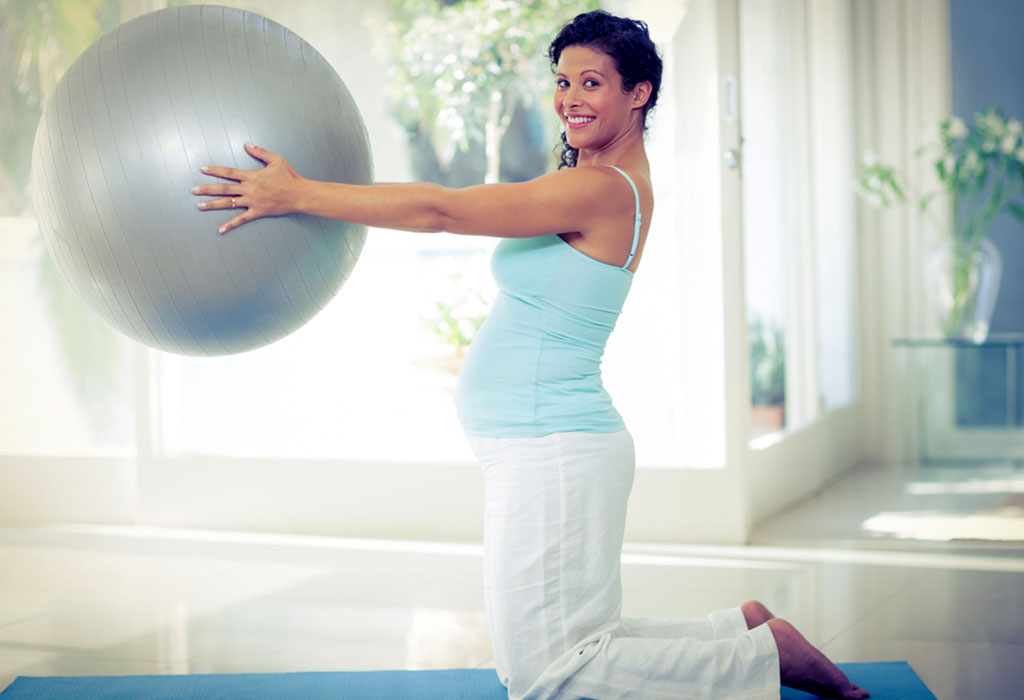In this Article
During pregnancy, you experience many physical and emotional changes. With the pieces of advice and suggestions that come your way during this special phase of life, it’s normal to wonder whether bending is okay while you’re carrying a baby.
Is It Safe to Bend During Pregnancy?
Bending is considered safe as long as the baby is safely ensconced in your womb. The amniotic fluid cushions your baby and lets him move his body and limbs when you bend. Though it is unlikely to hurt your baby, bending might make you extremely uncomfortable as the pregnancy progresses. It might also put a strain on your back.
Also Read: Best Standing & Sitting Positions During Pregnancy
Bending in the First Trimester
In the first trimester, your body is still flexible and your baby is too small to be affected by bending. The placenta and the stomach lining also do their bit to keep the baby from harm. Unless your doctor has specifically asked you to avoid bending in the first trimester, it is alright to do so.
Reasons To Avoid Bending in the Third Trimester
As your pregnancy progresses to the third trimester, your baby will grow and so will your belly. Some possible risks of bending forwards at this stage are:
1. Falling
A big belly can throw you off balance when you try to bend. This is the time when a baby’s head drops into the pelvis and the body’s centre of gravity shifts. If you trip and fall, you may sustain injuries to your abdomen, which can lead to placental abruption. Bleeding, and miscarriage are a possibility as well.
2. Dizziness
Bending forwards results in a rush of blood to the head, making you feel dizzy and light-headed. The loss of balance is dangerous in the last trimester of pregnancy.
3. Heartburn
When you bend, pressure is exerted on your stomach and can lead to acid reflux and, in turn, heartburn. Stomach acid flows back into the food pipe, leaving an unpleasant taste on your tongue, and a burning sensation in your oesophagus.
4. Back Strain
Back pain is a common problem during pregnancy, and bending forwards puts extra strain on your back. It may also prove painful to your weakened ligaments.
How To Bend During Pregnancy?

If there’s no choice other than bending, keep these tips in mind:
- Instead of bending your body forwards, spread your knees apart and squat down.
- When you’re getting up from a bent position, make use of your hands, knees, and thighs.
- If you’re lifting something heavy, position it under your belly to stay aligned with your centre of gravity.
Be careful while you go about your daily chores. Don’t hesitate to seek help if and when needed.
Tips To Maintain Good Posture During Pregnancy
A good posture during pregnancy can help to minimise aches and pains, and at the same time, reduce the strain on your back. Posture refers to the way you stand, sit, sleep, and drive. Here are some expert tips:
1. Standing Posture
Keep your head, neck, and back in a straight line. Your shoulders should be set back. Always keep your feet pointed in the same direction and distribute your weight on both feet. Opt for low-heeled footwear to prevent strain to your body.
2. Sitting Posture
Your shoulders should be set back and your spine should be straight when you sit. Make sure your bottom touches the back of the seat. You can use a small, rolled-up towel to support the curve of your back. While getting up from a seated position, move to the front part of the seat, slowly straighten your legs and stand up.
3. Driving Posture
Use back support and ensure your knees are level with your hips or higher. Adjust your seat such that your belly is at least 10 inches away from the steering wheel. Your feet should easily reach the brakes.
4. Lifting Posture
Ensure your feet are firmly placed on the floor before lifting anything during pregnancy. Bending down, especially to pick up something from the floor can be troublesome. This is what you should do – keep your back straight and just bend your knees and hips. If the object is on a table, pull it close to your body first and then lift it. That said, it is best to avoid lifting heavy objects during pregnancy.
5. Sleeping Posture

Avoid lying down on your stomach or back. These positions put a strain on your back and heart, besides reducing blood flow to the placenta. Sleeping to the left improves blood flow to your vital organs as well as to your baby in the womb. Use pillows and a firm mattress for comfortable sleep throughout your pregnancy.
Avoid situations that require you to bend while you’re pregnant. Ask for assistance from family and friends if needed. By taking these precautions and avoiding overexertion, you can keep yourself and your baby safe even if you bend.
Disclaimer: This article is just a guide and not a substitute for medical advice from a qualified professional.









